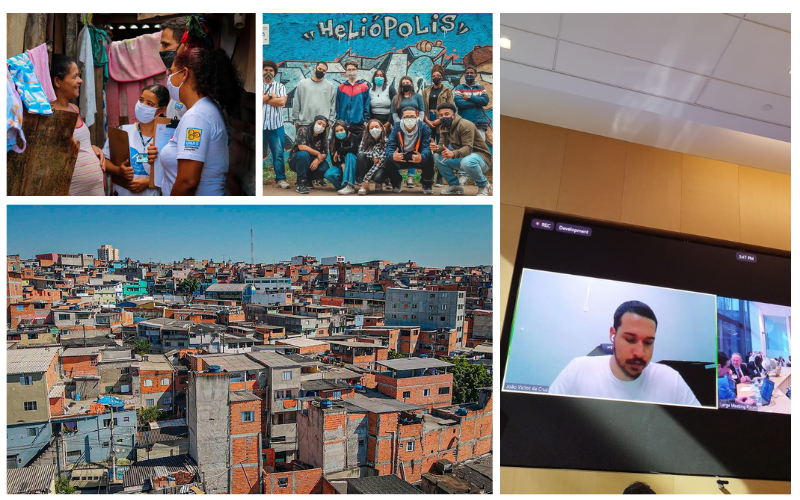To introduce myself and express who I am worldwide is complicated because the world has many realities. To present mine, I have to tell a story that came before me that I inherited from my parents and my teachers.
I come from one of the biggest favelas in Brazil, and you may have seen this term before. Still, beyond everything you can find on the internet about favelas, these are places of struggle and empowerment, a great school of what civil organization is, and a place of much resistance from people who, most of the time, are just exercising their right to have a place to call home. It is no different in my Quebrada (as the favela’s residents call it).
The favela of Heliópolis, in the city of Sao Paulo, has one million square meters, with about two hundred thousand people living here today, and more than 50 years of history of struggles, similar to other favelas throughout Brazil. It started as temporary housing for 120 families that were involuntarily relocated by the government, from another favela, with the promise of a decent home after five years. However, 20 years have passed since then.
These families have never received the right to this housing in another area. As it is a human instinct, during this time, people started to communicate and organize themselves as a community, with assemblies and the creation of several organizations. However, as these years passed, the government wanted to sell part of that area to build a shopping mall. This action made the population there organize itself even more, and all these associations, organizations, and leaders got together to stop this eviction. There was the beginning of what we call a civil society organization, but I like to call it UNAS.
UNAS (União de Núcleos, Associações dos Moradores de Heliópolis e Região) is the organization that arose from the union and communication between the diverse collectives organized in the territory, not only to defend the right to live in Heliópolis but also to transform it into a place where the rights of all were exercised and guaranteed. Over time the fight for housing became a fight for life, not only in the sense of being alive but also in the sense of being able to live with dignity, understanding that it is the government’s duty and the right of people, especially the poorest, to have a guaranteed quality of life, with health, education, culture, and leisure. A struggle that has lasted for more than 50 years.
Despite all this history of 50 years, which I have summarized here, I still continue the struggle for my parents, now in a different context and time. For almost ten years, I have participated effectively in social projects and in the battle to guarantee rights for my neighborhood and other places that identify with the reality of the slum, understanding that to do politics is much more than speaking on behalf of a political party, that to do politics and articulate public policies that serve society it is necessary to be in contact with the people that are in the place, understand them from the potentials of the people, and understand that they are the ones who are in charge of the politics.
To understand their potential and their challenges in an effective way, this should be the role of the government. It is necessary to open spaces and encourage young people, essentially those who are more vulnerable and in conflict with the state in some way, whether because of their color, race, or social reality. This is the fight I inherited from my parents, not only to transform the territory but to transform people. Following the line of thought of a great Brazilian educator Paulo Freire, I don’t believe I will change the world, but I will encourage and educate someone who will. Today I work as coordinator of a public policies observatory; this is my mission; working with other young people, I multiply the will and teachings passed to me by the history of my place, forming new citizens who will fight for their rights.
Giving space to these voices is essential for minority agendas to be discussed in depth, from poverty to issues such as the extermination of nations and cultures and climate change. When I say give space, I mean that it is necessary to fund these voices because we often depend on governments and their willingness to listen to us or not; I believe that in Brazil, we have a little more space this year. Still, to expand these voices, it is necessary to invest and demand the participation of civil society in these discussions.
This article is based on one of the stories told during the Development track in the Talanoa Dialogues session, Global Futures Forum, which took place on March 20-21, 2023, in New York City, organized by the Coalition for the UN We Need (C4UN).



